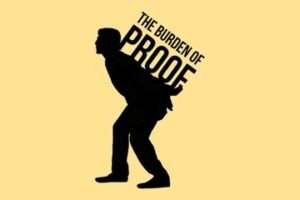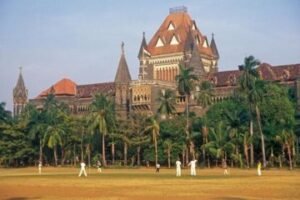Experiment Is Not An Ordinary Measure; Must Be Resorted To Sparingly And In Extraordinary Circumstances
Case: Deepak S/o Laxman Dongre Vs State Of Maharashtra
Coram: Justices Ajay Rastogi, Abhay S. Oka
Case No.: CrA 139 OF 2022
Court Observation: ..Under clause (d) of Article 19(1) of the Constitution of India, there is a fundamental right conferred on the citizens to move freely throughout the territory of India. In view of clause (5) of Article 19, State is empowered to make a law enabling the imposition of reasonable restrictions on the exercise of the right conferred by clause (d). An order of externment passed under provisions of Section 56 of the 1951 Act imposes a restraint on the person against whom the order is made from entering a particular area. Thus, such orders infringe the fundamental right guaranteed under Article 19(1)(d). Hence, the restriction imposed by passing an order of externment must stand the test of reasonableness.
There cannot be any manner of doubt that an order of externment is an extraordinary measure. The effect of the order of externment is of depriving a citizen of his fundamental right of free movement throughout the territory of India. In practical terms, such an order prevents the person even from staying in his own house along with his family members during the period for which this order is in subsistence. In a given case, such order may deprive the person of his livelihood. It thus follows that recourse should be taken to Section 56 very sparingly keeping in mind that it is an extraordinary measure.
“…For passing an order under clause (b), there must be objective material on the basis of which the competent authority must record subjective satisfaction that there are reasonable grounds for believing that such person is engaged or is about to be engaged in the commission of an offence involving force or violence or offences punishable under Chapter XII, XVI or XVII of the IPC. Offences under Chapter XII are relating to Coin and Government Stamps. Offences under Chapter XVI are offences affecting the human body and offences under Chapter XVII are offences relating to the property. In a given case, even if multiple offences have been registered which are referred in clause (b) of sub-section (1) of Section 56 against an individual, that by itself is not sufficient to pass an order of externment under clause (b) of sub-section (1) of Section 56. Moreover, when clause (b) is sought to be invoked, on the basis of material on record, the competent authority must be satisfied that witnesses are not willing to come forward to give evidence against the person proposed to be externed by reason of apprehension on their part as regards their safety or their property. The recording of such subjective satisfaction by the competent authority is sine qua non for passing a valid order of externment under clause (b).”
“….Though the competent authority is not required to record reasons on par with a judicial order, when challenged, the competent authority must be in a position to show the application of mind. The Court while testing the order of externment cannot go into the question of sufficiency of material based on which the subjective satisfaction has been recorded. However, the Court can always consider whether there existed any material on the basis of which a subjective satisfaction could have been recorded. The Court can interfere when either there is no material or the relevant material has not been considered. The Court cannot interfere because there is a possibility of another view being taken. As in the case of any other administrative order, the judicial review is permissible on the grounds of mala fide, unreasonableness or arbitrariness.”
“Perusal of the impugned Judgment and order of the High Court shows that unfortunately, the Division Bench did not notice that an order of externment is not an ordinary measure and it must be resorted to sparingly and in extraordinary circumstances. It was the duty of the Constitutional Court to test the said order within the parameters which are well-settled by this Court.”
Previous Posts
Leniency Can’t Be Shown For Drunken Driving Merely Because No Major Accident Occurred: Supreme Court
‘Name Is An Intrinsic Element Of Identity’: Supreme Court Issues Guidelines For Recording Corrections & Changes In CBSE Certificates Download Judgement
Keywords
Ordinary Measure, Experiment, Extraordinary Circumstances




